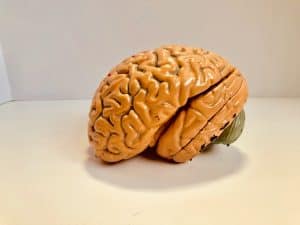Key Takeaways
- The brain is an intricate organ, pivotal to the body’s functioning, yet susceptible to complex diseases.
- Understanding brain health and diseases offers insight into maintaining overall well-being.
- Ongoing research is unlocking new treatments and solutions for neurological disorders.
- Glioblastomas epitomize the challenges faced in treating aggressive brain tumors.
- Community support and awareness are crucial elements in addressing brain health issues.
The Brain’s Hidden Power: A Brief Overview
The human brain, a marvel of evolution, orchestrates every facet of human life. Its influence is profound, from processing complex thoughts and evoking memories to controlling emotional responses and regulating vital physiological functions like heartbeat and respiration. Despite its robust role, this intricate organ is inherently fragile, shielded only by the cranium, making it susceptible to a range of conditions and injuries. Increasing our understanding of what is glioblastoma and other neurological disorders is paramount, as it strengthens public health initiatives and supports early diagnosis and treatment interventions.
A particularly aggressive type of brain cancer called glioblastoma serves as an example of why neurology needs more awareness and investigation than ever before. Glioblastoma presents a great deal of difficulties for patients and medical professionals due to its fast growth and resistance to standard treatments. The complexities of its behavior demand innovative approaches to treatment, including targeted therapies and immunotherapy, as well as comprehensive support systems for affected individuals and their families. By fostering collaboration among researchers, clinicians, and advocacy groups, we can pave the way for breakthroughs that enhance survival rates and improve the quality of life for those impacted by this formidable disease.
Common Brain Disorders: A Closer Look
Brain disorders manifest in various forms, each presenting unique challenges. Alzheimer’s disease, characterized by relentless cognitive decline, devastates loved ones and caretakers alike, stripping away memories and autonomy. Parkinson’s disease, on the other hand, primarily affects motor functions, leading to tremors, rigidity, and bradykinesia. These disorders highlight the complexity of neurological conditions, underscoring the necessity for individualized treatment strategies and comprehensive care approaches. To combat the rising incidence of these conditions, sources such as the CDC provide essential guidelines and resources to help individuals recognize symptoms and seek timely medical intervention.
Modern Advances in Neurology
In recent years, neurology has witnessed unparalleled advancements, propelled by technology and cutting-edge research. Novel imaging techniques, including functional magnetic resonance imaging (fMRI) and positron emission tomography (PET), allow clinicians to explore the enigmatic workings of the brain in real time, enhancing our understanding of neural networks. Concurrently, advancements in gene therapy hold promise for tackling genetic disorders at their root, providing more precise and personalized treatment options. These developments are revolutionizing patient care, offering hope for a future where neurological diseases are not only treatable but potentially curable.
Challenges in Treating Glioblastomas
Glioblastomas are infamous for their aggressive nature and poor prognosis, often posing significant hurdles in cancer treatment. These malignant tumors rapidly infiltrate brain tissues, complicating surgical resection and reducing the efficacy of conventional therapies like chemotherapy and radiation. However, research in this field is robust, with scientists exploring novel therapeutics such as immunotherapy and targeted drugs to combat this formidable foe. Such innovations could dramatically enhance survival rates and improve life quality for those diagnosed, making the relentless pursuit of research and development in this area all the more crucial.
Importance of Early Detection
Time is of the essence in the realm of neurological diseases, where early detection can notably alter outcomes. Prompt diagnosis allows for the implementation of early interventions and targeted treatments, potentially slowing disease progression and preserving cognitive function. Raising awareness about the signs and symptoms associated with brain disorders is vital, facilitating timely consultation with healthcare professionals. The Mayo Clinic offers crucial insights into recognizing early symptoms, empowering individuals to proactively take charge of their brain health.
Community’s Role in Enhancing Brain Health
Community networks play a pivotal role in addressing the challenges posed by brain disorders, providing invaluable support to individuals and families alike. Such networks cultivate environments of inclusion and understanding, offering emotional sustenance and practical assistance. Additionally, they serve as powerful platforms for advocacy and education, raising public awareness about brain health and influencing policy to enhance healthcare access and research funding. The collective strength of communities can drive meaningful change, improving lives and fostering hope for better management and treatment of neurological diseases.
Looking Forward: The Road Ahead
The future of brain health is pregnant with potential, buoyed by ongoing research endeavors and the collective determination of scientists, clinicians, and advocates. As we continue to unlock the mysteries of the brain, emphasis on education, early intervention, and supportive community networks will be vital in shaping health strategies and enhancing quality of life. With concerted efforts and persistent innovation, a future where neurological conditions are expertly managed and even eradicated is ever closer on the horizon.
Moreover, the integration of technology in brain health research is revolutionizing our understanding and treatment of neurological disorders. Advances in neuroimaging, artificial intelligence, and wearable health devices are enabling real-time monitoring of brain activity and mental health, allowing for personalized treatment plans that cater to individual needs. These tools enhance our ability to diagnose conditions more accurately and empower patients to take an active role in their care. As we harness these innovations, the collaboration between technology and healthcare will be crucial in developing new therapies and preventive measures, ultimately leading us toward a future where brain health is prioritized and optimized for all.

